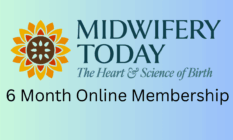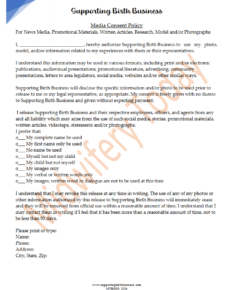
Photo by Hari Nandakumar
Wild Garlic Council
Midwifery Today, Issue 133, Spring 2020.
Join Midwifery Today Online Membership
In response to the WHO declaration on 11 March 2020 of COVID-19 as a global pandemic and because we are, as MorningStar Community, the epicenter of calm and capable for disaster preparedness in Birth and otherwise, I hereby this day announce the creation of a new council to support health and well-being among our global community by way of providing information, a place for question and discussion, evolving protocols for prevention, precaution, protection, response, recovery and follow up with respect to short and long term healing with the assistance of community and collective sharing of solutions and experiences while maintaining much needed inspiration, encouragement and cooperation for generations of well-being.
The Council shall be named Wild Garlic Council and shall work in good relations with the High Council, Wolf Council, and Bear Council.
Clarification of the “Germ Theory”: It is hard to talk about the germ theory if we don’t understand vulnerability. It is important to affirm that humans, life forms, and our planet herself is in great need and respect of a healthy, balanced microbiota. Fear of “germs” led us into a world society where cleanliness became extreme and antibiotics in medicine, our households, our gardens, our personal hygiene, and care of children weakened basic immune systems and strengthened the very “germs” we feared. Therefore, we want to talk a bit about vulnerability and exposure to germs that help us understand the “germ theory.”
It applies to those most vulnerable. The sick, the lonely, the young, the elderly, the confined in groups, the weak, the displaced, the frightened, the low resource individuals or communities. Sick people make sick people sicker. Exposing the gut and lungs (remember the skin is an absorbing and breathing organ) to elements that are foreign to one’s system creates vulnerability and compromise even in a healthy person. When we travel in public transports or at distance by way of airports, airplanes, trains, trams, buses, boats, etc., where we become exhausted or anxious or unable to eat or drink normally, we create vulnerability. If we navigate foreign lands with exposure to fresh foods, street foods, unclean water, dirt paths, etc., we may or may not be able to assimilate the micros that locals find harmless. If we have pre-existing illnesses or conditions, especially respiratory, we are already compromised. If we are grieving, we are vulnerable. If we are confined to hospitals, nursing homes, recovery centers, prisons, day care centers, evacuation centers, refugee or immigrant camps, informal community tents, or dense populated living, we are at risk and our health compromised. If we have given birth or are a newborn, even if we are healthy, we are vulnerable. When those we care about are in these circumstances, we know there is an increased vulnerability to the compromise of health and well-being. All of us are vulnerable in disaster circumstances of which a global pandemic is one. Understanding helps us create a healthy response.
Whether COVID-19 or other bacterial or viral diseases, there is so much we can do and have on hand including support materials and people (preparation), to keep ourselves healthy (prevention and precaution), to regain our health if exposed and symptomatic (response and containment), and help others we care about if they are ill (protection and followup).
The following is not an exhaustive list or necessarily in order of importance or always possible considering available conditions. It is a beginning and meant to increase compassion and communication. Our cookbooks Comida I and II have informational pages on the home medicine chest and how to get through the cold/flu season without getting one, etc.
Preparation
- Do what you can with what you have in a disaster.
- Listen for alerts from your local, national, or global health advisors.
- Gather suggested items for keeping you, your loved ones, and your environment clean.
- Without panic or stockpiling, gather the foods, fluids, healing aids, perishables, and non-perishables that you feel will help you through a 2–4 week intense period.
- Understand as best you can the nature of the disaster with information available and keep connected with trusted resources.
- Identify your support team and how you can be of support to others, if possible.
- Know your medical backup plan.
- To prepare for a potential unplanned birth at home, take the Basic Disaster Birth Support Training and Newborn First Breaths Training.
- Download the EmerGently and NewBorn First Breaths Brochures at the following websites:
- sistermorningstar.com
- worldbirthhub.org
- Stay calm and capable.
Prevention and Precaution
- Take a daily fresh air walk whenever possible or allow fresh air in living spaces.
- Get routine and adequate rest and sleep.
- Wash your hands with soap and water or non-germicidal hand sanitizer if no clean water is available before touching food and after using the toilet.
- Cover mouth when coughing, sneezing, or yawning and wash hands.
- Consider alternatives to the traditional handshake and stay friendly.
- Eat fresh foods and drink clean water. Increase healthy snacks and keep hydrated.
- Add cultured foods and/or drinks to your diet.
- Add oregano leaf extract or olive leaf extract or favorite immune support to your water bottle.
- Drink warm herbal teas.
- Take a spoonful of local honey daily.
- Diffuse water into the air with essential oils of lemon, citrus, lavender, etc.
- Reduce stress from fear, worry, anxiety, with time in nature and positive companionship.
- Don’t share drinks, straws, hand towels, things that touch the hands and then face.
- Increase healthy options for food, rest, supplements, etc., when vulnerable (see above)
- Wipe devices that touch your hands or face like keyboard, phones, laptops, notebooks with appropriate cleaning solutions. Same for eyeglasses. Avoid sharing.
- Do what increases your gratitude and the Joy factor.
- Don’t stigmatize or blame social groups or individuals, especially those who are sick.
- Don’t touch public toilets with hands or bum. Use a paper barrier or stand and then wipe for the next person.
- Do get some bodywork or do gentle yoga for healthy circulation.
- Rub your own feet and chest with a healthy oil infused with citrus EO, tiger balm, etc.
- Keep a meter distance from folks who are sick unless you are their caretaker.
- Practice calming mind meditations, affirmations, visualizations, and breath techniques.
- Stay calm and capable.
Response and Containment
- At the earliest sign or symptom of illness, stay home and seek help.
- Identify increased vulnerability such as diabetes, age, pre-existing conditions that involve gut or lungs, etc.
- Reduce your activity and social exposure.
- Increase fluids adding lemons or limes to drinking water.
- Begin or increase favored supplements such as vitamin C, zinc, echinacea, elderberry, etc.
- Gargle with warm salt water or peppermint wash.
- Swallow slowly local honey for sore throat.
- Cranberry juice for scanty or hot urine.
- Elderberry and Echinacea tea, juice, water for building immunity.
- Simplify the diet to singles, soups, and add garlic, onion, turmeric, ginger, etc.
- “Feed a cold and starve a fever.”
- Change or clean dishes, towels, clothes, dish towels, bed linens, yoga mats, etc., frequently or after each use.
- Clean countertops, dishes, toilets, etc., after use.
- One time use of tissue, handkerchief, hand towel, straw, etc.
- Use a bamboo toothbrush and rinse with boiling water after use and discard after recovery.
- Clean, bathe, or dry-brush your skin daily, especially soiled areas.
- Bath salts and soaks with tepid water and teas if vitality allows.
- Don’t share. Even a kiss. Don’t blow kisses.
- Keep fresh plants or flowers in your recovery room whenever possible for help with clean oxygen and live energy.
- Reduce calls, texts, contacts that tire you or your loved one.
- Don’t look in a mirror.
- If you are the caretaker of someone ill at home, wash hands before and after, wear a nose and mouth covering when in their room or near them, follow the same habits as above. Stay emotionally positive and connected. Isolation can be emotional as well as physical and become a mental as well as physical risk factor.
- Stay calm and capable.
Protection and Follow-up
- Keep up with all the above.
- If you or someone you love is getting worse rather than better, seek help.
- Keep a journal of the changing symptoms and monitor their improvement and steadiness.
- Keep a journal of what items you are taking or giving to help with the healing process.
- Note the emotional and mental state as well as physical.
- Evaluate and adjust the healing plan every 6–12 hours.
- Don’t keep doing what isn’t working.
- Make special note of correlation between a remedy/treatment and improvement.
- Provide fresh air and indirect sunlight whenever possible.
- Don’t make the healing journey alone. Ask for help and create and recreate a support team.
- Maintain all the precautionary habits for staying well around someone sick.
- Return to normal life with slow steps of re-entry.
- Share your story.
- Report or check in after a return to normal activity at two weeks, one month, and three months to educate yourself and your community on the effects of the illness.
- The general observation for serious respiratory or gut illness is a two-week incubation after which the individual is no longer contagious, assuming no further symptoms have emerged.
- Celebrate health and well-being. No one is replaceable. We all matter.
- Remain calm and capable for what comes next.
Feel free to email comments or questions to sister@sistermorningstar.com
We are the epicenter of calm and capable for our families, communities, and our world.
In it with you. Every day. Every night. Blessed Be. Blessed Do.
Sister MorningStar
The Wild Garlic Council
MorningStar Community

 Sister MorningStar has dedicated a lifetime to the preservation of instinctual birth. She birthed her own daughters at home and has helped thousands of other women find empowerment through instinctual birth. She is the founder of a spiritual retreat center and author of books related to instinctual and spiritual living. She lives as a Cherokee hermitess and Catholic mystic in the Ozark Mountains of Missouri. Visit her on the web at:
Sister MorningStar has dedicated a lifetime to the preservation of instinctual birth. She birthed her own daughters at home and has helped thousands of other women find empowerment through instinctual birth. She is the founder of a spiritual retreat center and author of books related to instinctual and spiritual living. She lives as a Cherokee hermitess and Catholic mystic in the Ozark Mountains of Missouri. Visit her on the web at: 



















